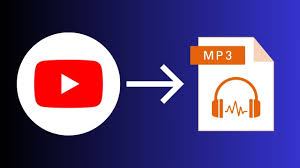The YouTube to MP3 converters have brought several legal problems on themselves over the years & has caused controversies around tech world. Ipsedigit over 2 billion monthly users on YouTubeit's only logical that several would like to pull audio from videos. Nevertheless, the legal world concerning these tools is rather murky due to challenges such as copyright law complexities. The U.S. Copyright Office explains that when someone reproduces, distributes or displays content without permission from the rights holder is guilty of copyright infringement. By changing a YouTube video to an MP3 file format, users often end up bypassing official licensing agreements and open themselves on potential copyright issues. Media industry data say up to 90% of the downloaded MP3s from YouTube are being used without rights.
One of the most notorious cases of this was when the Recording Industry Association of America (RIAA) went after a number YouTube to MP3 sites back in 2012, which resulted in domains being seized or shutdown. The RIAA claims these services are in violation of the Digital Millennium Copyright Act (DMCA) as that law forbids the circumvention of digital rights management (DRM) tools. As the legal expert Jonathan Bailey noted in a 2016 post, “Using these tools effectively bypasses much of YouTube’s DRM protections and takes it into flat-out illegal activity.
Additionally, platforms who provide such a service say that they have simply created the tool — what users do with it is their responsibility. It is akin to the doctrine that developed out of 1984 Betamax U.S. Supreme Court decision which held up a technology provider could not be liable for users actions if there were substantial non-infringing uses of their product; this claim sounds an awful lot like saying: our software pitches your code during playback and recording, but we are only doing finger exercises in practice! However, the non-infringing uses are tiny for YouTube to MP3 converters since most converstions involve copyrighted content.

Another sales loss The music industry, estimated to account for over $26 billion of revenue per annum — its now-infamous MP3 era losses were in the hundreds of millions each yearly due to unlicensed file sharing — is particularly vocal where intellectual property thefts are concerned. The revenue loss reverberates throughout the industry, particularly in 2023 when streaming accounts for 83% of all music sales. Spotify, Apple Music and other streaming heavyweights have worries of their own as well with users potentially leaving legitimate services to download music for free which could in turn end up reducing the subscription count.
Others take the risk due to convenience and savings in time and money. Many of our users are asking is it legal to use YouTube mp3 converter? Well, it really depends on the content. Legally we could possibly convert some public domain or Creative Commons licensed videos to mp3 format, but nearly all music clips on YouTube are copyrighted which makes it illegal.
In summary, the jury still is out whether YouTube to MP3 converters are illegal or legal; however, usage of these probably infringes on copyright for converting copyrighted works. The keyword youtube to mp3 converter reveals how popular and dangerous these tools can become.
